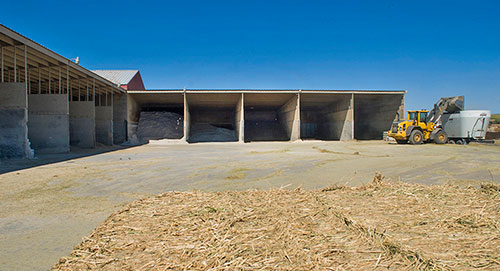
We have to be mindful that dietary "advice" can erode public faith in science and agriculture. I bring this to the forefront after reading the Hoard's Dairyman Intel, "We've been all wrong on fat."
The "general public" harbors a strong mistrust of "science." A recent article in the general news media about a report linking eating citrus to skin cancer brought only a few dozen comments along the lines of "I don't trust anything they say." In comparison, an article about mandatory vaccinations garnered over 200 comments, none of which were passively dismissive like the comments about citrus.
At the risk of invoking the ire of those scientists who work hard to understand the links between diet and health, I will suggest that the high-profile reversals by "authorities" and "experts" on dietary advice have indeed left the general public very skeptical of dietary advice. I will also claim that these reversals have contributed to an erosion of public trust in science generally.
All of us concerned about the future of agriculture in the U.S., and more generally about the prospect of mass hunger and starvation in the latter part of the 21st century, agree that agriculture needs to speak with one voice. Articles like "We've been all wrong on fat" and the book it references serve to ratchet up the discord within agriculture. The recent round of "eat this, not that" has led those involved with grains to publish prolifically, refuting the claim that "grains are bad."
Evidence that dairy products contribute to positive health outcomes is welcome news for the dairy industry. The presentation of that evidence should not include negative statements about other dietary components because there is ample evidence that almost everything we eat has both positive and negative aspects.
Those of us who have formulated rations for dairy cows know about the very detailed knowledge that has been amassed over the last 40-plus years about the dietary needs of dairy cows. This knowledge is contained in the NRC publication "Nutrient Requirements of Dairy Cattle." This document references over 700 research papers, and offers a computer program for predicting a cow's milk production based on the nutrient content and amount of what she eats and physical characteristics of the cow.
Human nutrition is arguably as complex as bovine nutrition: The 2006 "Dietary Reference Intakes" manual, published by the National Research Council, references over 2,000 research papers dealing with human nutrition. Unlike dairy cows, there is no computer program offered for predicting how a specific combination of nutrients will affect human performance. In comparing the two publications, it is obvious that we have a much more quantitative understanding of how to feed dairy cows than we have of how to feed ourselves.
Given that large body of somewhat imprecise research, it is highly implausible that the simplistic pronouncements such as "carbohydrates are bad" or "saturated fats are bad" are very useful summaries of human nutrition requirements. The publicizing of specific reports about the dietary benefits of dairy products may benefit the dairy industry in the near term. However, all of agriculture should think long and hard about how best to convince a very skeptical public that anything produced by modern large-scale agricultural production methods can contribute to positive health outcomes.
The process of scientific discovery in the biological sciences relies on years, if not decades, of experiments, opposing hypotheses and sometimes controversy. This can cause the nonresearch-literate general public to see the process as just more evidence that "scientists don't know what they are talking about." In contrast, those of us in biomedical research totally understand a quote attributed to Albert Einstein: "No, we don't know what we are doing. That's why it is called ‘research.'" Even with the ambiguity and uneven progress, biomedical research has produced vaccines, medicines and knowledge of widespread vitamin deficiencies that has doubled the average life span since 1900.
In my opinion, one "study" or one New York Times bestseller does not make scientific truth, and in the long run the attention-grabbing sensationalistic headlines serve only to erode the public's trust in "science." Unfortunately, most people derive their concept of "science" from a high school class, in which they were told that some simple "experiment" that they performed in class "proved" some hypothesis. It is a very unrealistic portrayal of the reality of biological and biomedical research, where there are few questions that have black or white answers.
The scientific research community, through numerous scientific societies, is increasingly focusing on K-12 education as the critical component in the process of gaining public trust and support of science. Agriculture should follow the lead of organizations like the American Association for the Advancement of Science in sponsoring and promoting science education (and agricultural education).
Yes, we need to promote our products, but hawking one report that supports our product rings hollow. Remember that much of the anti-vaccination sentiment is justified on the basis of a single retracted paper, and a similar situation exists with the anti-GMO attitudes so prevalent worldwide. While reports supporting the health benefits of dairy products are nice to see, we should put those reports in the larger context of the history of dietary advice. We must all find ways to best convince the general public that support for scientific research generally, and agriculturally related biotechnology research specifically, is in everyone's best interest, both for personal health and for national security.
Roy Williams, New Hampshire
Molecular and Cellular Biology Program
Department of Genetics and Department of Biomedical Data Science
Geisel School of Medicine at Dartmouth College
Hanover, New Hampshire





